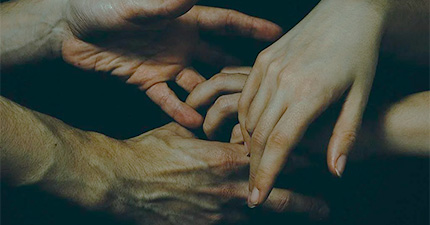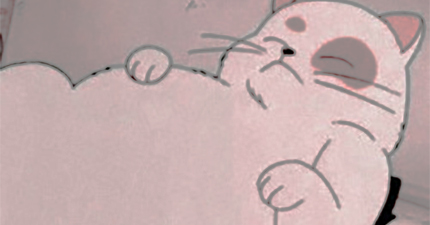Defensive fear has a certain structure. There are three roles found in the structure of defensive fear: a hero, an aggressor, and a victim.
Each of these three roles play a part in narrating defensive fear. We know that the aggressor is vilified but we might be surprised to learn that, very often, victims are also vilified. After Hiroshima, survivors complained that they were treated with contempt by those who do not want to be seen as victims or even associated with victimhood themselves. Victimhood is treated as contagious. Heroism is interesting. Heroes are often seen enacting just as much violence as aggressors but their actions are justified for some reason.
This is the drama narrative of defensive fear. It is one story.
This one story that defensive fear tells is not reality. Defensive fear is not the most realistic emotion out there.
An example: during pandemics, nations rush to close their borders before doing anything else. The contagious are seen as an outside threat to the domestic population. Even though the risk of spread has already occurred when an infectious disease is known, political leaders will usually choose to close borders instead of increasing funding and support for the healthcare system.
The story that defensive fear tells us is that we can protect our version of normal as long as we keep aggressor-victims at a distance. The reality of infectious disease is that we are all interdependent. None of us are safe as long as the most vulnerable among us fear loss of life. We achieve better immunity when we feed each other and care for each other. This is because better nutrition, shelter, and rest protects life.
During the Bush years, I remember one frequent refrain. “You can’t spread freedom through the barrel of a gun.” This saying is still true.
A weapon tries to accomplish one very specific task and it always, always fails in this task. A weapon tries very hopelessly to separate aggressors from victims. Why does it always fail? Because defensive fear does not distinguish between aggressors and victims. Defensive fear vilifies all those who suffer while marked by injustice. What could a gun ever accomplish when our fear blurs the world instead of clarifying?
Why does defensive fear not differentiate between aggressors and victims? Because defensive fear is actually about defending pride and not life. Hence, the heroism.
I think that a lot of survivors understand the problem of victimhood as an identity. When we are told that we are victims, we know that we are speaking with people who want to speak for us and over us instead of fighting alongside us. These same people will start to see us as aggressors if we make one move out of line.
So, this is interesting. If the politicizing of fear doesn’t lead to justice, then what does it do? What is the real role of a weapon?
Weapons are machines. As machines, they behave mechanically and eat resources like a machine does. A machine extracts in Congo, extracts labor in Asia, and extracts oil from the Middle East. A weapon exists to create more circumstances where weapons will be needed. All of this is done under the guise of industry.
Do weapons have more rights than human beings? Does industry have more rights than human beings? Are corporations guaranteed more rights than human beings?
Is the narrative of defensive fear given more credibility than the multiple stories that even a single human life can hold?
Is pride more meaningful than dignity?
There exists a common assumption. The assumption is that being anti-war is uncritical, naive, and also popular. But how do we square that with the noticeable popularity of even genocidal war? When wars start, people start to applaud. We see people cheer genocide on.
Defensive fear can be mesmerizing. The narrative of defensive fear is so heavily promoted that it starts to look like reality. Despite the propaganda, every single person is capable of feelings other than defensive fear.
We are capable of curiosity. We might be curious about why a group of people are vilified. We might be sad when we see children killed. We might even feel fear that is not defensive, fear that provokes us into moral clarity and action. We might feel anger for ourselves or on behalf of someone else.
Defensive fear is not the only true emotion. No emotion is. When we pretend that one emotion is more real than other emotions, we are distorting reality. We are being delusional. There’s a word for a society where one emotional narrative triumphs all other stories. Totalitarianism comes to mind.
Right now, there is a global increase in authoritarianism. It’s easy to get scared about this but we have to remember that this is a reaction to something. Totalitarianism isn’t real power. Totalitarianism is a deception and a backlash to something else that is happening. The thing that totalitarianism reacts to is the innate power of the people coming together, a power that no weapon can ever stop. This is something to remember. Our oppressors tell us to fear each other but they will never tell us how much power we have.
1 of 188
>>>


